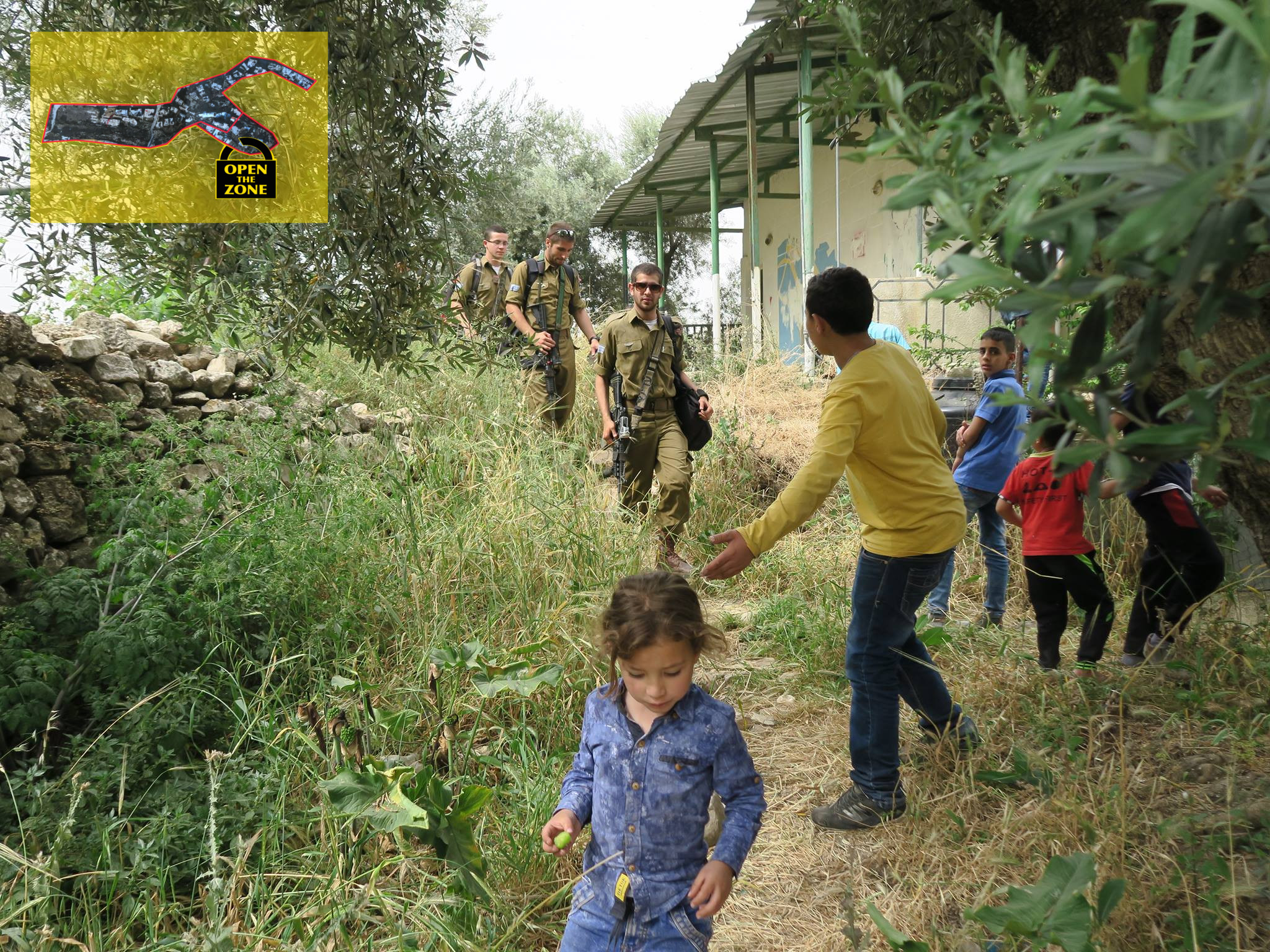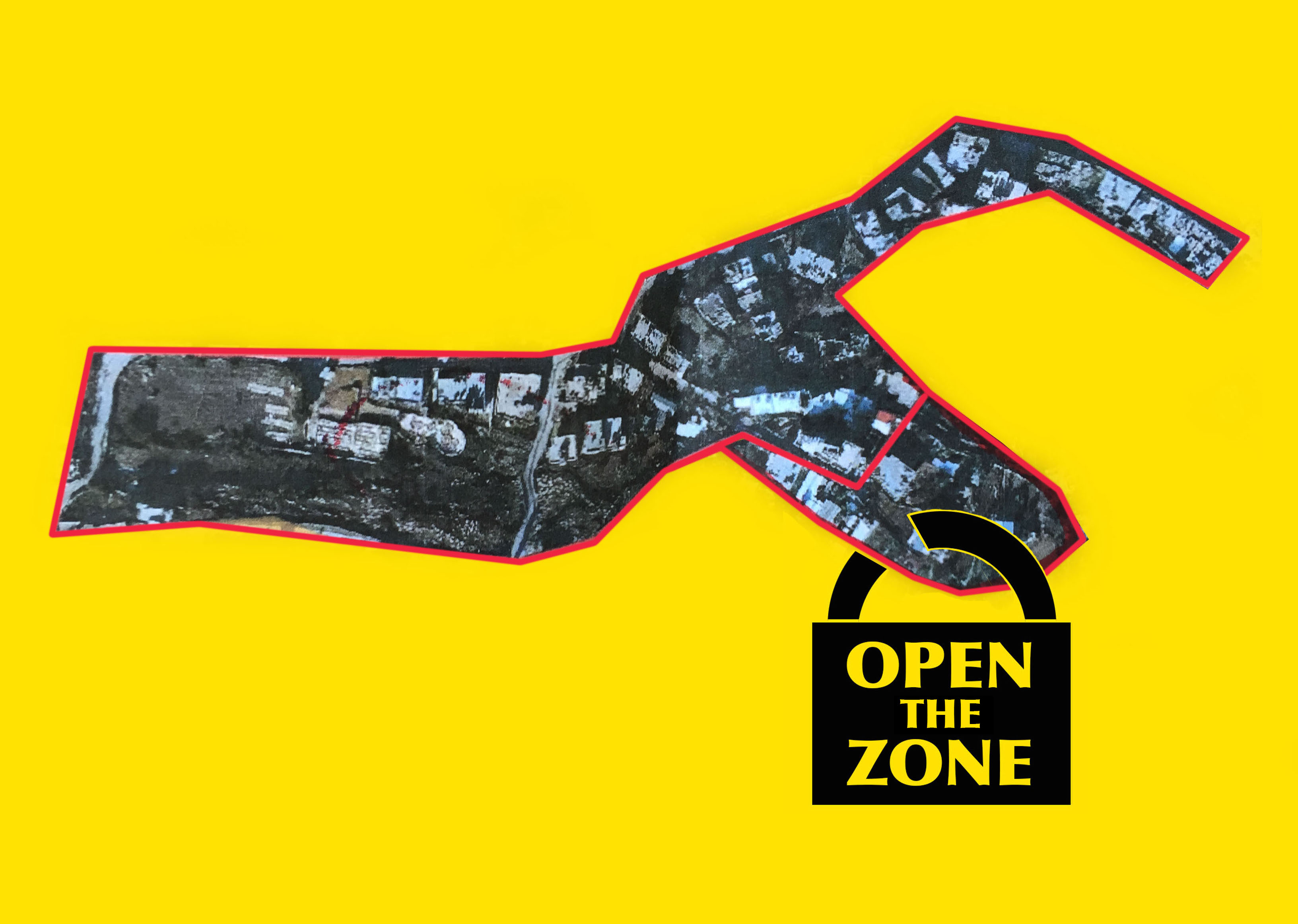Tag: Ethnic Cleansing
-
Open The Zone campaign against Closed Military Zone launched in Hebron
3rd May 2016 | Open The Zone Campaign| Hebron, occupied Palestine On May 3rd 2016, the Open the Zone campaign was launched in cooperation with Zleikha Mohtaseb with a children’s play about oppression, which took place directly outside the arbitrary borders of the closed military zone in Tel Rumeida, Hebron. The campaign targets the deliberate…
-
Open The Zone: personal accounts
Saturday, May 28th (Mufeed Sharabati) Mufeed Sharabati, 50-years, Shuahda Street resident compares living in the closed military zone (CMZ) with prison – just worse: “Life here is even worse than being in jail. A prisoner knows when his sentence is over. A prisoner knows when he can have visits. No-one knows that here. We are…
-
Open The Zone: Palestinians are people – not numbers
3rd May 2016 | Open The Zone Campaign: International Solidarity Movement & Youth Against Settlements | Hebron, occupied Palestine *******UPDATE 20th May 2016******* The closed military zone order has officially been ‘lifted’ – many restrictions and discrimination remain. ******* 3rd May is number 186 of the closed military zone in Tel Rumeida and Shuhada Street.…


